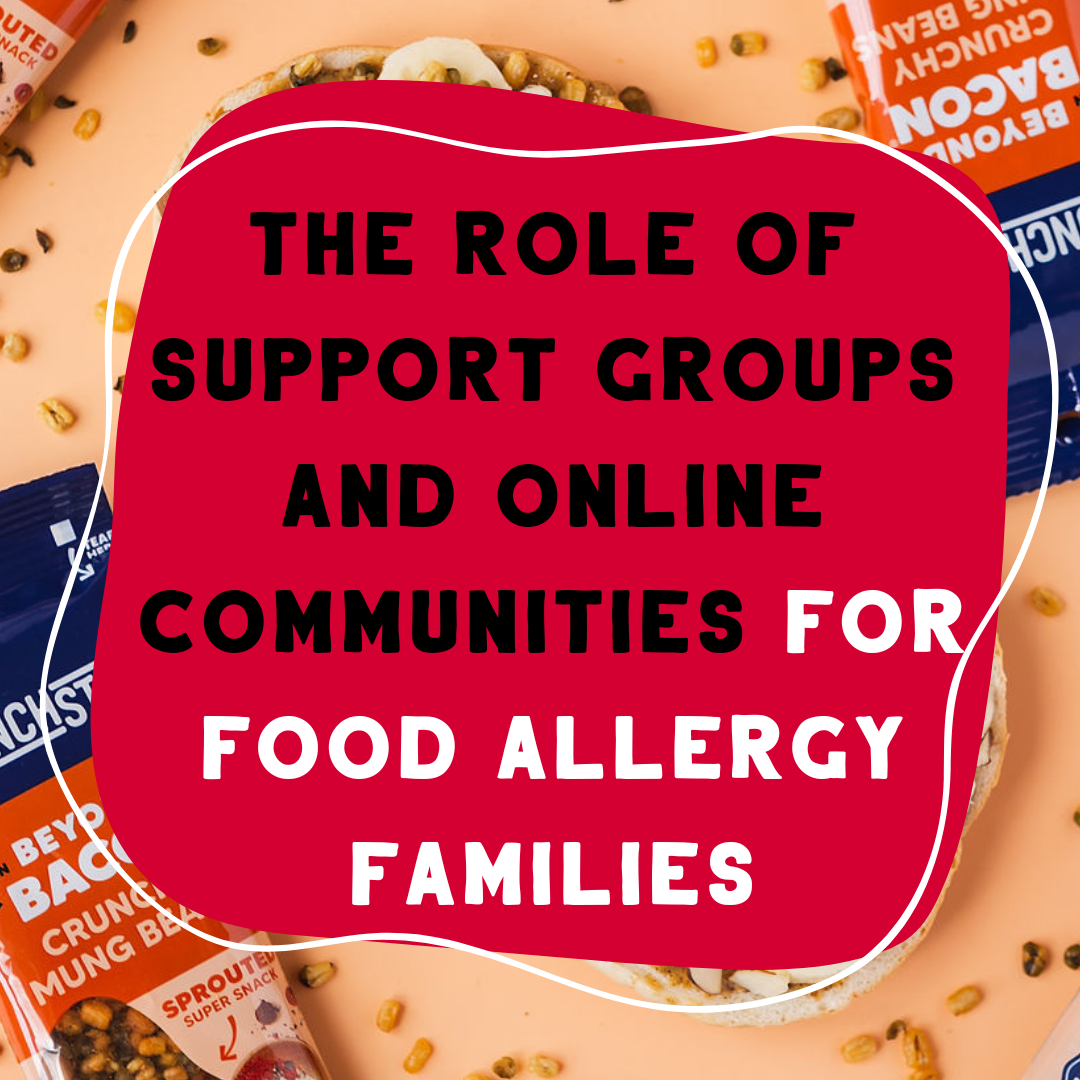

The Role of Support Groups and Online Communities for Food Allergy Families
The Role of Support Groups and Online Communities for Food Allergy Families
Managing food allergies can be overwhelming, especially when navigating daily challenges like meal planning, school environments, and social gatherings. Connecting with others who understand these challenges can provide a much-needed sense of relief, support, and community. Support groups and online communities offer a safe space for families dealing with food allergies to share advice, find encouragement, and learn from one another. Here’s why joining these groups can be invaluable, and how to find the right one for your family.
- Emotional and Practical Support
Living with food allergies often involves high levels of stress for both parents and children. Support groups offer a space where you can connect with others facing similar struggles. Families can share stories, discuss anxieties, and learn practical coping strategies for everything from meal prep to handling allergic reactions in public places.
- Why it's helpful: Being part of a support group can reduce feelings of isolation and help alleviate the anxiety that comes with managing food allergies.
- Learning and Sharing Practical Tips
Support groups and online communities provide a wealth of knowledge. Parents can share personal experiences, offer tips for handling food allergies in schools or restaurants, and stay updated on the latest food allergy treatments, products, and research.
- Example: Online forums like Kids with Food Allergies (KFA), a part of the Asthma and Allergy Foundation of America (AAFA), provide families with access to peer-to-peer advice, allergy friendly recipes, and forums where they can ask questions and get support directly from other parents.
- Connecting with Professionals and Experts
Some support groups feature guest speakers, such as allergists or nutritionists, who offer professional insights on managing food allergies. These experts provide valuable information on navigating food labels, managing emergency situations, and understanding new medical treatments.
- Find it: Organizations like Food Allergy Research & Education (FARE) offer both in-person and virtual support groups where families can connect with experts and others dealing with food allergies. FARE’s website provides a helpful tool to locate support groups near you or online.
- Advocacy and Awareness
Many food allergy support groups are involved in advocacy work, helping raise awareness about food allergies and promoting policies that support safer environments in schools, restaurants, and public spaces. Being part of such groups allows families to contribute to broader efforts while ensuring their own voices are heard.
- Example: Food Allergy & Anaphylaxis Connection Team (FAACT) runs local and national initiatives to advocate for those living with food allergies, providing resources, training, and even opportunities to get involved in community events and campaigns.
- NNMG Food Allergic Families
The No Nuts Moms Group (NNMG) Food Allergic Families is an informative blog and network of Facebook groups that cater to parents of children with food allergies. These groups offer regional support across the USA, making it easier to connect with other families dealing with similar challenges in your area. Each group focuses on sharing advice, safe product recommendations, and local allergy friendly resources.
- Find it: Join the NNMG Food Allergic Families Facebook groups to connect with others in your region and learn about local events, resources, and recommendations.
- Finding the Right Support Group
Not all support groups are the same, so it’s important to find one that meets your family’s specific needs. Some groups focus on education, while others may prioritize emotional support or advocacy. Here are some questions to consider when looking for a support group:
- Is the group moderated by experienced individuals or healthcare professionals?
- Does the group meet in person, online, or offer a mix of both?
- Are there privacy and confidentiality policies in place?
- Does the group focus on topics relevant to your family’s situation?
Groups like Kids with Food Allergies, FAACT, and NNMG Food Allergic Families offer well-established support networks that provide reliable resources and community connections for families.
- Online Communities for Busy Families
For families who may not have the time to attend in-person meetings, online communities are a great option. They offer flexibility and allow you to connect with others at your convenience. Whether you’re looking for advice on allergy-friendly products or simply need a safe space to vent, these virtual support systems can make a big difference.
- Find it: Platforms like MyFoodAllergyTeam, a social network dedicated to food allergy support, allow families to share experiences and advice in a judgment-free environment. KFA’s online community also offers discussion forums, webinars, and up-to-date news on food recalls and new allergy-friendly products.
Creating Connections for a Stronger Support System
Whether you’re looking for emotional support, practical tips, or advocacy opportunities, joining a food allergy support group or online community can provide immense value. These groups not only help families cope with the daily challenges of managing food allergies, but they also foster connections that can last a lifetime. Explore organizations like FARE, Kids with Food Allergies, FAACT, and NNMG Food Allergic Families to find the support that fits your family’s needs and ensure you never feel alone in your food allergy journey.
For more resources, visit:
